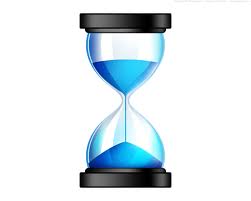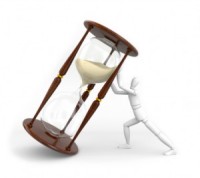 As mentioned, I’ve started interviewing a subset of the people who responded to my request for biographical material. These people offered to share the stories of their lives as addicts. Most have recovered. Some are still in process. The point is that this is a rare gift. It gives me a unique and potent data set for my next book – intimate accounts of what it’s like to be addicted and then to try, and fail, and try, and eventually (hopefully) succeed in getting on with one’s life. I haven’t gotten all that far with the book. The proposal has been blessed by my agent. My sample chapter is sitting in his inbox. I’ll discover its fate soon enough.
As mentioned, I’ve started interviewing a subset of the people who responded to my request for biographical material. These people offered to share the stories of their lives as addicts. Most have recovered. Some are still in process. The point is that this is a rare gift. It gives me a unique and potent data set for my next book – intimate accounts of what it’s like to be addicted and then to try, and fail, and try, and eventually (hopefully) succeed in getting on with one’s life. I haven’t gotten all that far with the book. The proposal has been blessed by my agent. My sample chapter is sitting in his inbox. I’ll discover its fate soon enough.
Meanwhile, I want to tell you what I’m starting to learn from these interviews – even this early in the game.
First, you should know that they take place by Skype or phone – sometimes I see the person I’m talking to and sometimes I have to use my imagination. They seem to last an hour to an hour and a half, and they are full of painful memories – usually memories that have been rehashed many times over, while people try to make sense of them. Now they’ve got someone else rehashing them with them. Sometimes I feel like a dentist, drilling until I strike a new vein of distress or at least discomfort, and I know it must hurt, but we’ve got to get to these details if the book is to be as compelling as I want it to be. I know it hurts partly because I’ve been to similar places, and my memories of the bad times don’t seem to fade much. And I know it because I can get goose-bumps up and down my arms or tears in my eyes. So much suffering! It bowls me over. And so much loneliness – the isolation of being locked in your addiction with everyone you care about eyeing you from the outside.
But I often come away from these interviews uplifted and optimistic, rather than depressed. Because just about everyone I’ve talked to – no, everyone I’ve talked to – has mounted a campaign against his or her addiction and eventually won, or at least formed a truce. And that takes the best of a person: courage, dedication, forebearance, creativity, and plain common sense. I’ve said it before: addicts (ex or still struggling) are some of my favourite people.
I’m learning a lot from the interviews. But here I want to share just one thing that’s struck me repeatedly.
The lives of the people I’m interviewing – and probably the lives of most addicts – have an hourglass shape to them. They start out unique: each person begins with his or her own specific culture, family environment, level of education, personality, social network, personal secrets, and all the rest. But then, when addiction takes hold, these lives start to look exactly the same.  Regardless of whether it’s cocaine, opiates, alcohol, or even food, that wide range of individual differences shrinks to a narrow tube – the middle of the hourglass. What I mean is that people’s addictions have this fundamental commonality: the initial discovery that whatever it is helps with anxiety or depression, it feels golden, and then with time it becomes irresistible, then it’s no longer much fun, and then it becomes the source of new anxieties and more depression, as the desperation, the cover-up, the way we turn our back on other people, the way we turn our back on our own selves…. seem to be the main ingredients of everyone’s addiction. Then people make whatever attempts they make to get better, to get past it. (I’m not fond of the term “recovery” because that implies going backward, to something you once were.) And usually, eventually, after ten or a hundred tries, they make it. Then they start to live their own lives once more, and here’s where the hourglass starts to bulge out again, in its bottom half. Now individuality, creativity, and uniqueness get relaunched, without that yoke restricting them, and the hollow tube of mindless repetition fans out to a million possible ways to live your life.
Regardless of whether it’s cocaine, opiates, alcohol, or even food, that wide range of individual differences shrinks to a narrow tube – the middle of the hourglass. What I mean is that people’s addictions have this fundamental commonality: the initial discovery that whatever it is helps with anxiety or depression, it feels golden, and then with time it becomes irresistible, then it’s no longer much fun, and then it becomes the source of new anxieties and more depression, as the desperation, the cover-up, the way we turn our back on other people, the way we turn our back on our own selves…. seem to be the main ingredients of everyone’s addiction. Then people make whatever attempts they make to get better, to get past it. (I’m not fond of the term “recovery” because that implies going backward, to something you once were.) And usually, eventually, after ten or a hundred tries, they make it. Then they start to live their own lives once more, and here’s where the hourglass starts to bulge out again, in its bottom half. Now individuality, creativity, and uniqueness get relaunched, without that yoke restricting them, and the hollow tube of mindless repetition fans out to a million possible ways to live your life.
That’s what I’ve learned so far. Tell me your thoughts. Have you also experienced the commonality of addiction, or do you see it another way? There may be massive exceptions to the pattern I seem to be noticing. And stay tuned. I plan to share a lot more as the book proceeds and I get caught up in trying to match these life profiles to the brain events going on below the surface. That will require me to go back to the neuroscience of addiction and do more homework, to try to figure out how it is that the features of the brain are necessary for understanding the features of addiction.

Leave a Reply